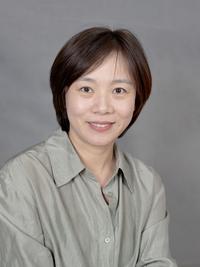- Rahul Aggarwal
- Åsa Arrhenius
- Thomas Backhaus
- Anders Boman
- Frida Book
- Bethanie Carney Almroth
- Natàlia Corcoll
- Jessica Coria
- Ingela Dahllöf
- Jenny Egardt
- Lena Gipperth
- Daniela Gomez Martinez
- Mikael Gustavsson
- Martin Hassellöv
- Pedro Inostroza
- Julia Johansson
- María José Zapata Campos
- Jimmy Karlsson
- Erik Kristiansson
- Tobias Lammel
- Sverker Molander
- Tabea Mumberg
- Julia Osterman
- Joana Pedroso
- Pernilla Rendahl
- Daniel Slunge
- Thomas Sterner
- Leo Stockfelt
- Patrik Svedberg
- Philipp Wanner
- Yiyi Xu
Mixed chemicals need mixed competences
A complex challenge needs a wide range of competences.
FRAM is set-up to overcome disciplinary and departmental boundaries between natural sciences, economics, law and political sciences. Our research team includes about 20 researchers from the University of Gothenburg and Chalmers University of Technology.
Since we work trans-disciplinary, we are equipped to understand the relevant complexity of the problem of chemical mixtures. We also consider the diversity of academic, industrial and societal perceptions of the problem. Lastly, we serve as a lighthouse for the global teaching and dissemination of novel methods for chemical risk assessment and management.
Rahul Aggarwal
Rahul Aggarwal is a doctoral student at Chalmers University, working on quantifying the environmental impacts of "forever chemicals," focusing on persistent and mobile chemicals. His project is titled "ZeroPM." He completed his master's degree at KTH Royal Institute of Technology, Stockholm, in 2020, specializing in Environmental Engineering and Sustainable Infrastructure. Rahul has experience in Life Cycle Assessment (LCA) analysis. His research focuses on sustainable environmental practices, particularly reducing chemical impacts by quantifying their effects over the lifecycle of products that use these chemicals.
Contact: rahula@chalmers.se
For more contact details and publications, visit his personal page.
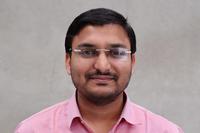
Åsa Arrhenius
Åsa Arrhenius' background is within ecotoxicology of chemical mixtures mainly to microbial communities. Other areas of interest has been ecotoxicology of pharmaceutical and biocides especially antifouling biocides and their mixtures.
Contact: asa.arrhenius@bioenv.gu.se
For more contact details and publications, visit her personal page.
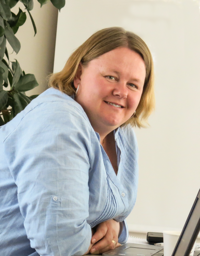
Thomas Backhaus
Thomas Backhaus main research interest is the toxicology and ecotoxicology of chemical mixtures and its regulatory assessment. In this context he has been working with several regulatory authorities in Europe and elsewhere. Additional research interests include the environmental assessment of emerging pollutants (e.g. pharmaceuticals, veterinary drugs, biocides, nanoparticles) and the substitution of hazardous chemicals. He is currently co-leading the risk characterization work of the OECD project on combined exposures and OSPARs intersessional communication group on cumulative stressors.
Contact: thomas.backhaus@bioenv.gu.se
For more contact details and publications, visit his personal page.
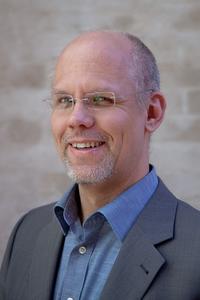
Anders Boman
Anders is a Senior Lecturer in Economics whose research focuses on risk perceptions and consumer reactions to risks and information about risks. Current research is investigating how consumers value risks from hazardous chemicals in consumer products and how information about these risks are most efficiently given to consumers.
Contact: anders.boman@economics.gu.se
For more contact details and publications, visit his personal page.

Frida Book
Frida Book is a postdoctoral researcher at the University of Gothenburg, specializing in environmental science and ecotoxicology. She is dedicated to generating high-quality empirical ecotoxicological data for both scientific research and regulatory applications. Currently, Frida is testing the ecotoxicity of pharmaceuticals, surfactants and biocides. She also has experience working with nanoparticles and pesticides, both individually and in mixtures. Alongside her laboratory work, Frida is trained in systematic review methodologies for assessing the risk of chemicals based on scientific information retrieved from open-source databases.
Contact: frida.book@bioenv.gu.se
For more contact details and publications, visit her personal page.
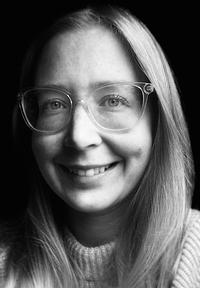
Bethanie Carney Almroth
Chair Steering Committee
Contact: bethanie.carney@bioenv.gu.se
For more contact details and publications, visit her personal page.

Natàlia Corcoll
Natàlia is a biologist and ecotoxicologist with a strong interest in studying the impact of toxic chemicals, among other stressors, on the structure, function and tolerance development of algal and microbial communities. Her research is based on experimental lab work and field surveys using a combination of ecophysiological and genomics methods.
Contact: natalia.corcoll@bioenv.gu.se
For more contact details and publications, visit her personal page.
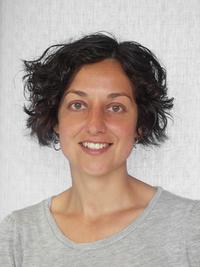
Jessica Coria
Jessica Coria's main research interest is the optimal design of environmental policies. A major focus of her current research is the effects of the multi-governance of environmental issues and pollutants’ interactions on optimal policy design. The fact that pollutants interact and that regulatory strategies and policies in place in most countries disregard the existence of cross effects between pollutants imply that actual regulations are not optimal and might lead to unintended side effects. The research evaluates the performance of different instrument combinations and identifies the institutional arrangements needed for effective coordination and implementation of integrated pollution management.
My role in FRAM is to identify and propose policy options for accounting for chemical mixture effects. I also participate in the development of case studies where our policy suggestions can be tested along a gradient of societal, economic and political systems.
Contact: jessica.coria@economics.gu.se
For more contact details and publications, visit her personal page.
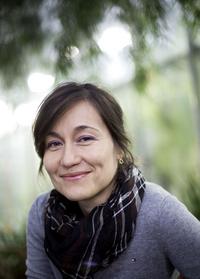
Ingela Dahllöf
Ingela Dahllöf is a marine ecotoxicologist with a background in biogeochemistry and microbiology. Her main research interests are understanding effects on a community and ecosystem level, both in the pelagic and benthic habitats. Some focus areas are tolerance and cost of living in contaminated environments, as well as effects on ecosystem services such as nitrogen cycling and productivity.
She is currently involved in the EU project Contrast, which intend to design and deliver frameworks for monitoring compounds of emerging concern in European oceans.
Contact: ingela.dahllof@gu.se
For more contact details and publications, visit her personal page.
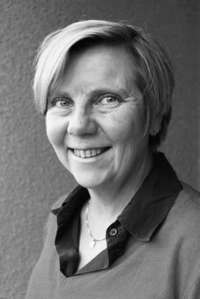
Jenny Egardt
Centre Coordinator
Jenny Egardt has a background in marine ecology and microbiology. She did her PhD on effects of leisure boats in shallow coastal areas, studying occurrence and potential impact of anchor damage, antifouling paints and sea floor litter.
Current research areas include emissions of scrubber and bilge water from the shipping industry and the impact these emissions have on marine zooplankton communities.
Contact: jenny.egardt@bioenv.gu.se
For more contact details and publications, visit her personal page.
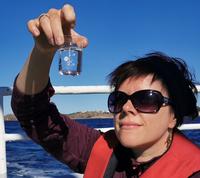
Lena Gipperth
Lena Gipperth's research interests are within the fields of Environmental law, Marine governance, Water management
Her thesis is a study of legal techniques for the achievement of objectives relating to environmental quality and primarily of environmental quality standards.
Multidisciplinary research projects concerning achievement of environmental quality objectives: project leader in the programme Sustainable Coastal Zone Management. She also runs the project Designing legal structures and instruments supporting sustainable climate policy which is a part of a social science research program on ways to achieve the Swedish climate objective.
Contact: lena.gipperth@law.gu.se
For more contact details and publications, visit her personal page.
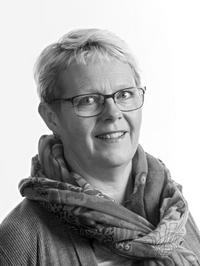
Daniela Gomez Martinez
Daniela has a background in biotechnology and ecotoxicology. Her current PhD project aims to provide new insights into the effects and acclimation mechanisms towards pesticides in freshwater microorganisms. Additionally, she studies the spread and establishment of antibiotic-resistant bacteria in the environment. Her work integrates both individual- and community-level approaches, combining lab and field studies. Daniela analyzes phenotypic endpoints and apply genomic and transcriptomic tools to gain a comprehensive understanding of these processes.
Contact: daniela.gomez.martinez@bioenv.gu.se
For more contact details and publications, please visit her personal page.
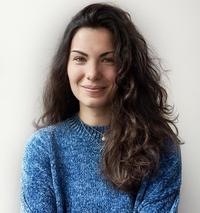
Mikael Gustavsson
Researcher at Dept of Biological & Environmental Sciences, University of Gothenburg
Mikael Gustavsson primarily works with risk assessment of chemical mixtures in the aquatic environment. He is interested in understanding how the chemical use influences the environment, specifically focusing on the distribution of positive and negative effects of chemical use between the individual parts of our society.
Within FRAM I mainly work with modelling the chemical emission from human activities into the aquatic environment.
Contact: mikael.gustavsson@bioenv.gu.se
For more contact details and publications, visit his personal page.
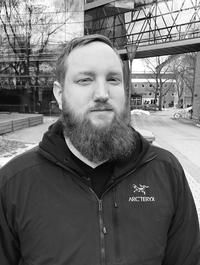
Martin Hassellöv
Martin Hassellöv has a background in the role of particles in transport and bioavailability of metals in aquatic systems (limnic, marine and urban waters and sediments). His expertise in natural colloids has progressed into the environmental risk research of synthetic nanomaterials, where characterization, analysis and studies of fate and transport have been his own focus areas. More recently he is building up a research group focusing on marine micro- and nano-litter, including but not limited to microplastic particles.
Within FRAM I mainly contribute with exposure assessments, and contaminant fate in aquatic ecosystems, and the development of fate assessment models.
Contact: martin.hassellov@gu.se
For more contact details and publications, visit his personal page.
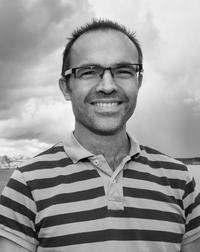
Pedro Inostroza
Researcher at Dept of Biological and Environmental Sciences
Also affiliated: RWTH Aachen University (Germany), Institute for Environmental Research (IFER), Group leader Molecular Ecotoxicology
Pedro Inostroza has a scientific background in environmental chemistry and ecotoxicology in aquatic ecosystems. He conducted his PhD at the Helmholtz Centre for Environmental Research – UFZ and received his PhD degree from the Faculty of Mathematics, Computer Sciences and Natural Sciences at the RWTH Aachen University (Germany).
His research interests span from occurrence, dynamic and fate of micropollutants in the aquatic systems until their effects at genetic/genomics level.
In FRAM, I contribute to investigate the effect of organic micropollutants on natural aquatic ecosystems. I also participate conducting environmental risk assessment of complex chemical mixtures.
Contact: pedro.inostroza@bioenv.gu.se
For more contact details and publications, visit his personal page.
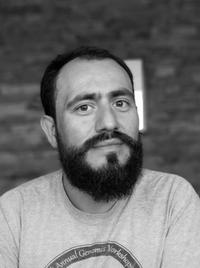
Julia Johansson
PhD student at the Department of Law, with a special focus on Environmental Law
Julia Johansson has a Masters of Law from University of Gothenburg. The title of her PhD project is "The Notion of Risk within Chemicals Legislation". Her research aims to analyze the connection between gender and environmental issues, such as handling of chemicals.
In FRAM, I assist with the legal understanding and analysis of the consequences different types of regulations concerning chemicals have.
Contact: julia.johansson@law.gu.se
For more contact details and publications, visit her personal page.
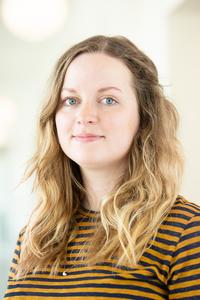
María José Zapata Campos
María is a sociologist and docent in business administration at the School of Business Economics and Law. She coordinates the Grassroots for Sustainability research group and the EU-financed project Circular Grassroots Innovations for sustainable and inclusive urban transitions. She has lead and participated in numerous research projects with a focus on waste management, and waste prevention, from a social justice perspective in global north and south cities. Currently she is also involved in research for a just plastic free transition in coastal areas in Kenya and is one of the founders and main organizers of the Opening the Bin research community where hundreds of researchers from social sciences and humanities meet since 2017.
Contact: mj.zapata@handels.gu.se
For more contact details and publications, visit her personal page.
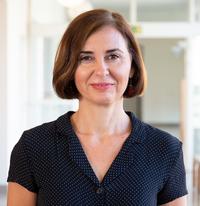
Jimmy Karlsson
PhD student at the Department of Economics
Jimmys research interest broadly covers environmental economics, labor economics and industrial organization. His current project is an empirical evaluation of the labor market impacts of climate policy in Sweden.
Within FRAM, I assist Jessica Coria in projects related to the regulation of chemicals in Sweden and the EU. In particular, I am involved in research on the political economy of REACH and the use of pesticides in Sweden.
Contact: jimmy.karlsson@economics.gu.se
For more contact details and publications, visit his personal page.
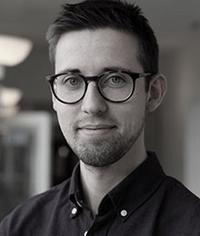
Erik Kristiansson
Erik Kristiansson works at the Chalmers University of Technology and is a biostatistician and bioinformatician with a strong interest in the analysis and modelling of big and complex data sets. His research is especially focused on the interpretation of high-dimensional molecular data within the environmental sciences and its application to the discovery of gene signatures in organisms exposed to pollutants.
In FRAM, I provide expertise in statistics, including the design of experiments, handling of the data and interpretation of the results. Statistical modelling is essential to incorporate and estimate uncertainties in chemical risk assessment.
Contact: erik.kristiansson@chalmers.se
For more contact details and publications, visit his personal page at Chalmers University of Technology.
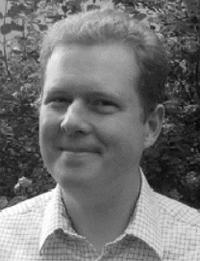
Tobias Lammel
Tobias Lammel is a researcher at the Department of Biological and Environmental Sciences at the University of Gothenburg, where he additionally serves as an Associate Professor (Docent) in Ecotoxicology. He is also a European-registered toxicologist. His research focuses on the assessment of chemical substances, including manufactured nanomaterials, using in vitro models based on cultured vertebrate cells. His general scientific interest lies in understanding the hazards of chemicals on the environment and human health, with a particular interest in the mechanistic aspects, and how this knowledge can be leveraged to develop new in vitro models, methods, and integrate them into risk assessment approaches.
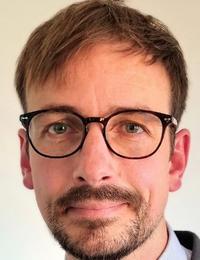
Sverker Molander
Sverkers research develops and applies systems approaches for research on human induced environmental changes and their mitigation, starting from descriptions of the interface between society-technology and ecosystems. The identification of indicators and indicator systems covering environment and sustainability is a recurring theme.
Ongoing research deals with cumulative ecological effects, ecological risks related to hydrokinetic turbines, indicators of risks of chemicals and their management, and socio-technical-ecological research on renewable energy. Urban water systems also attract my interest, including their material links to plant nutrients, chemicals, and the energy system, (the food-water-energy nexus).
Within FRAM I work with relevant indicators and systems for the description of environmental repercussions of chemicals.
Contact: sverker.molander@chalmers.se
For more contact details and publications, visit his personal page on Chalmers University of Technology.
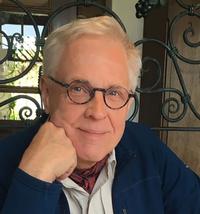
Tabea Mumberg
PhD student at the Dept of Earth Sciences
Tabea has a background in environmental chemistry and marine science. Her current PhD project is focused on contaminant hydrogeology and environmental science in the project "Artificial groundwater recharge – A shortcut for harmful poly- and perfluoroalkyl substances (PFASs) into groundwater systems and drinking water supplies – Can we avoid this?".
She studies the input of poly- and perfluoroalkyl substances (PFAS) to groundwater systems and drinking water supplies during managed aquifer recharge to understand the fate of these contaminants in raw water systems and looks at possible treatment steps to meet upcoming drinking water guidelines.
Contact: tabea.mumberg@gu.se
For more contact details and publications, visit her personal page.
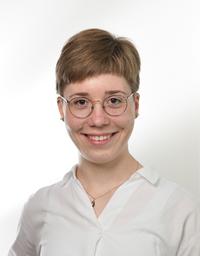
Julia Osterman
Postdoctoral researcher at the Department of Biological and Environmental Sciences and guest researcher at the University of Freiburg
Julia is an environmental scientist investigating the effects of pesticides on pollinators using laboratory, semi-field and field experiments. Julia has been a beekeeper which has evolved into a passion for wild pollinators. In her research, she is developing methods to use novel test species to expand our knowledge beyond experiments performed on honeybees (Apis mellifera). Within WildPosh, a Pan-European project, she and her colleagues are comparing the sensitivity of wild bees to pesticides, especially looking at differences between specialised and generalistic solitary bees. In addition, the aim is to establish methods to use hoverflies, another important taxonomic group of pollinators, in toxicological studies. Her research is also looking at the consequences of pesticides on the pollination services (e.g. fruit set, pollen grains deposited) insects provide to flowering plants, an often neglected but crucial endpoint in assessments.
Contact: julia.osterman@gu.se
For more contact details and publications, visit her personal page

Joana Pedroso
As a researcher specializing in EU environmental tax law, Joanas' focus revolves around examining the utilization of environmental taxation as a tool to tackle pressing environmental challenges. These challenges encompass issues like climate change, the use of hazardous substances endangering ecosystems and human health, and other pertinent concerns. To comprehend the intricate relationship between environmental protection objectives and fiscal measures, she explores various realms of EU law, including constitutional law, tax law, environmental law, and competition law.
Her efforts are directed towards pinpointing areas where environmental tax laws can be fortified or refined to create a synergy with EU environmental goals, which encompass endeavors such as curbing carbon emissions, advancing renewable energy sources, and safeguarding biodiversity. Additionally, she scrutinizes the efficacy of existing taxation frameworks in effectively signaling to individuals and businesses regarding their environmental impact.
Furthermore, her aspirations extend towards collaboration with scholars from diverse disciplines and practitioners across various sectors, aiming to foster synergies between academic research and real-world applications. This collaborative approach ensures that research findings translate into actionable insights and contribute meaningfully to environmental policy and practice.
Contact: joana.pedroso@law.gu.se
For more contact details and publications, visit her personal page.

Pernilla Rendahl
Pernilla Rendahl defended her doctoral thesis on cross-border consumption taxation of digital services and proposed further development of guidelines at both the OECD and EU level to resolve double taxation and double non-taxation issues in the value added tax. Since then both the OECD and the EU has created such guidelines. Main interest is identifying inconsistencies and question them based on theories of legislative effectiveness, certainty, equality and fairness.
My role in FRAM is to assist with the tax law perspective, considering different suitable instruments to reach the goal of FRAM.
Contact: pernilla.rendahl@law.gu.se
For more contact details and publications, visit her personal page.
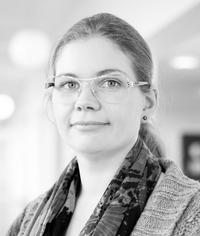
Daniel Slunge
Centre Director
Daniels research focuses on the analysis of policy instruments for chemicals, economic valuation, risk perception and how different assessment methods can contribute to decisions for a more sustainable development. He teaches at the doctoral level on research-policy interaction and risk analysis, and at masters level on sustainability assessment and environmental economic policy instruments. Daniel combines research and teaching with active participation in government investigations and collaborations with, e.g., Sida, the Swedish Environmental Protection Agency and the European Chemicals Agency. In addition, he has extensive international experience from collaborations in East Africa and Latin America and with international organisations such as the World Bank, OECD and UNEP.
Contact: daniel.slunge@gu.se
For more contact details and publications, visit his personal page.
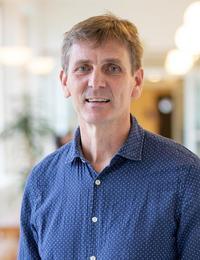
Thomas Sterner
Thomas Sterner is a Professor of Environmental Economics whose work is focused on the design of policy instruments to deal with resource and environmental problems. He has built up the Unit for Environmental Economics at UGot as a leading European centre for environmental economics that gives a unique PhD program in climate economics with students from developing countries.
In FRAM I focus on the design of policy instruments to deal with problems related to the use of chemicals that imply problems from the viewpoint of health or environmental quality.
Contact: thomas.sterner@economics.gu.se
For more contact details and publications, visit his personal page.
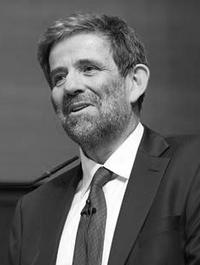
Leo Stockfelt
Leo is a medical doctor specialized in occupational and environmental medicine, where he leads the research group of environmental medicine and toxicology (MTOX). His research area is health effects of environmental and occupational risk factors such as air pollution and noise.
Contact: leo.stockfelt@amm.gu.se
For more contact details and publications, visit his personal page.

Patrik Svedberg
PhD student at the Department of Biological and Environmental Sciences.
Patrik received his MSc in bioengineering at Chalmers University of Technology, with a focus on bioinformatics. His research interest includes evaluation and development of ecotoxicological models, examining how such models are used in regulatory contexts and novel computational solutions in ecotoxicology – all with a strong data-driven approach.
Contact: patrik.svedberg@bioenv.gu.se
For more contact details and publications, visit his personal page.

Philipp Wanner
Philipp Wanner is a contaminant hydrogeologist whose research focuses on the behavior of legacy and emerging contaminants in groundwater systems such as chlorinated solvents, pesticides, plastic particles, and per- and polyfluoroalkyl substances (PFAS). Philipp's research provides the basis for selecting the most appropriate remediation approach for contaminant groundwater systems and providing clean drinking water from groundwater systems. Philipp also teaches freshwater quality courses at the Bachelor and Masters level at the Earth Science Department at the University of Gothenburg.
Contact: philipp.wanner@gu.se
For more contact details and publications, visit his personal page.
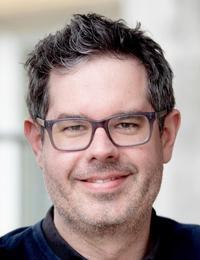
Yiyi Xu
Yiyi is an Associate Professor in Occupational and Environmental Medicine. Her research focuses on the health effects of exposure to air pollution, per-and polyfluoroalkyl substances (PFAS), and heavy metals. She also has experience with genetic and epigenetic changes related to environmental exposures, to understand the underlying mechanism linking exposures and health outcomes. Yiyi leads the MPH course on Work and Health at the School of Public Health and Community Medicine at the University of Gothenburg.
Contact: yiyi.xu@amm.gu.se
For more contact details and publications, visit her personal page.
